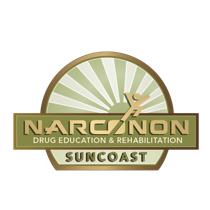How to Recognize the Need for an Intervention

Watching a loved one struggle with addiction can be heartbreaking, and this is especially true when they don’t want help. Unfortunately, addiction can completely take over a person’s life, even to the point where they don’t see the issue. It may get bad enough that a one-on-one conversation is enough to convince them to get help, or they may eventually recognize it themselves.
Others may never reach this point, which is where a formal intervention could be necessary. The question is how to recognize when it’s time for an intervention. Here’s how to recognize the need for an intervention.
Intervention Definition
Before going further, let’s take a look at the intervention definition to understand the process better. An intervention is a process planned by the family and loved ones of an addict to face the individual about their addiction. The process may also include a doctor, drug or alcohol counselor, members of the person’s faith community, or an intervention professional, also known as an interventionist.
During the intervention, the individual will be confronted about their addiction and its consequences. Loved ones will be there to share how the addiction has impacted them and their relationship with the individual. The overall goal is to convince the individual to attend treatment for their addiction.
Signs It’s Time for an Intervention
Ideally, families can intervene as soon as they notice signs of drug use or an alcohol problem. An early intervention could be something as simple as having a frank and caring conversation with the person about their recent behavior and letting them know you are concerned and are there to help. This can address the drug or alcohol use before it turns into addiction.
However, if it has progressed beyond this point, there will still likely be a period where the addiction has not yet led to severe consequences. However, this may also be a time when the addict still thinks they don’t have a problem.
This is where it may be a good idea for loved ones to have an early intervention before it gets worse. Some signs that it’s time for an intervention include:
- Changes in behavior
- Disinterest in activities they previously enjoyed
- Change of daily routine
- Weight or appearance changes
- School or work performance decline
- Disappearing for extended times
- Deterioration of health or hygiene habits
- Relationship deterioration
- Hard time being present during a conversation
- Impaired coordination
The above can be common signs of substance abuse, and if it continues, things will likely only get worse. Noticing the first signs of substance abuse can be a good time to try to talk to the individual about their situation. Loved ones may be able to convince them to get help before the problem escalates further. Unfortunately, if substance abuse escalates, symptoms like the following may occur:
- Loss of employment
- Withdrawal symptoms (can vary depending on the substance of choice)
- Risky and dangerous behavior
- Stealing to get their next dose
- Severe health consequences
- Completely neglecting responsibilities
- Blacking out
- Regular intoxication
- Prioritizing drug of choice over anything else
If the person is still refusing to get help or ignoring the problem after it is brought up, it is likely time for an intervention. The longer addiction continues, the more severe the consequences can become. Ultimately, interventions show the addict the direct consequences of their addiction and can help them realize it is time for help.
Are You Seeking Addiction Help for Yourself or a Loved One?
If you or your loved one are struggling with addiction, Narconon is here to help. Our holistic treatment program focuses on rehabilitating a person’s abilities to help them overcome addiction. We have helped thousands of people break free from the chains of addiction, and we would like to do the same for you. We know how challenging it can be to overcome addiction, but we will help guide you through.


